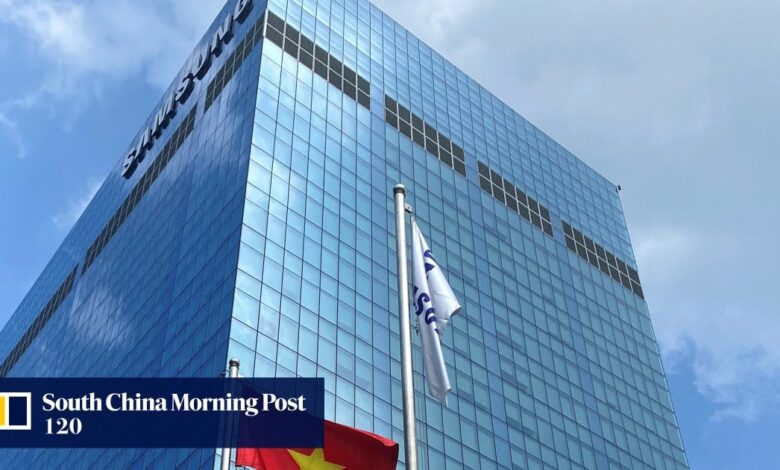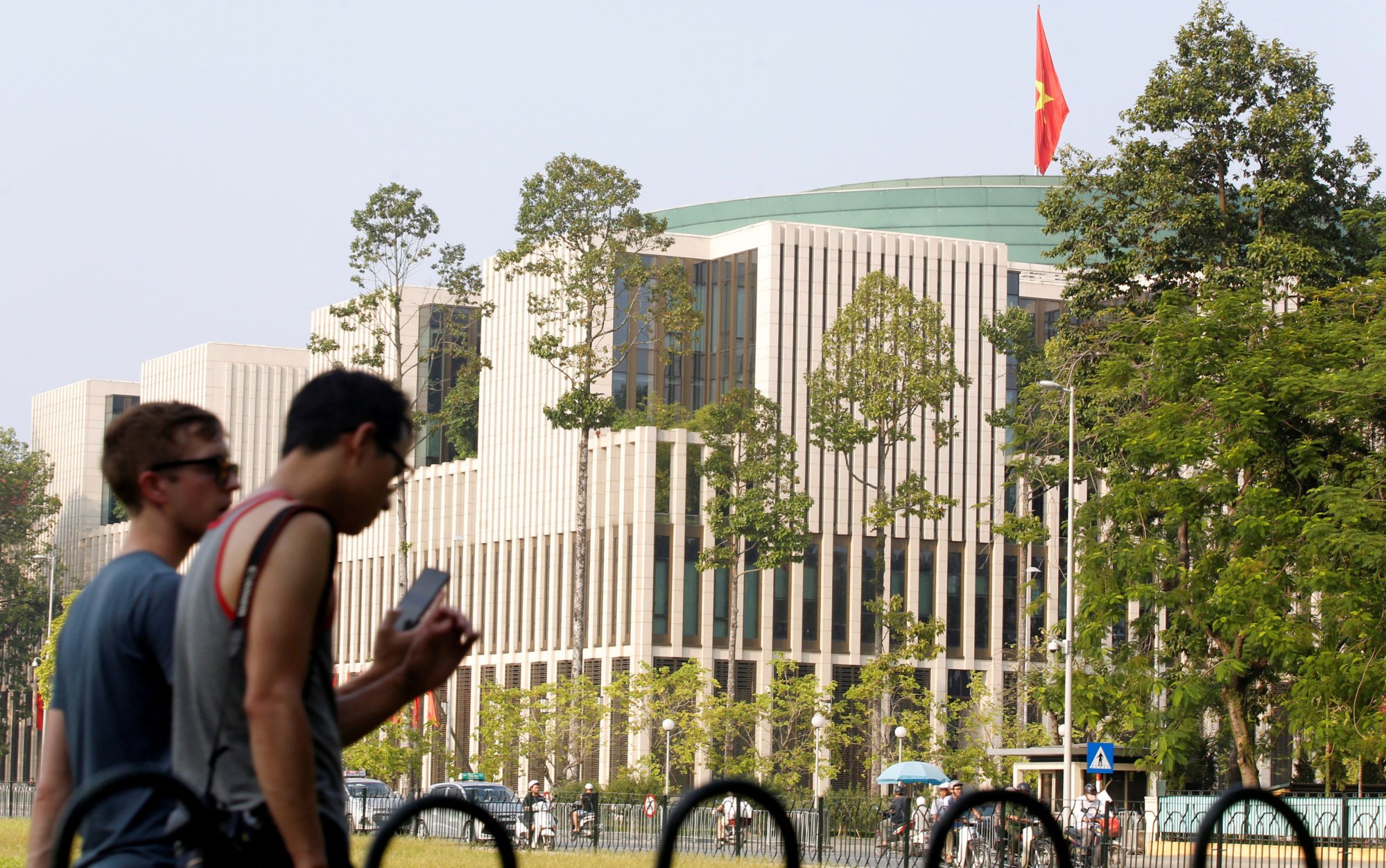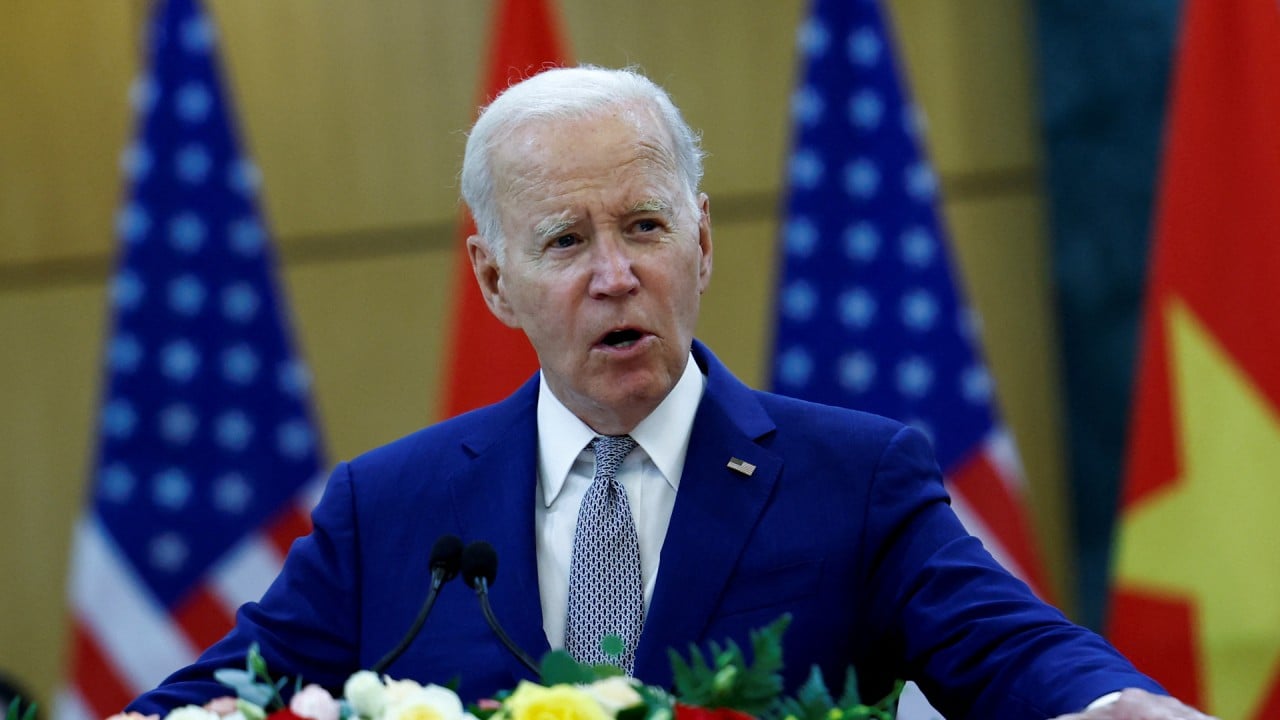South Korea’s Samsung expected to shoulder bulk of Vietnam’s corporate tax increase

[ad_1]
“The National Assembly is not issuing a separate resolution on investment incentives at this time,” said Le Quang Manh, head of the assembly’s financial commission.

Vietnam’s corporate income tax is already set at 20 per cent, but it has offered for years much lower effective rates to large foreign investors.
With the new rate, 122 foreign companies will face a steep increase in their tax costs, according to a document prepared by the government, which estimated the additional intake for the state at 14.6 trillion dong (US$601 million) a year.
A large portion of the additional tax bill is expected to be shouldered by Samsung alone. Its multibillion-dollar revenues from its factories are the largest in the country, according to one person involved in the preparation of the new incentives.
Vietnam’s youth opt for ‘lying flat’ amid crushing stress of economic boom
Vietnam’s youth opt for ‘lying flat’ amid crushing stress of economic boom
The South Korean electronics giant, which assembles half of its smartphones in Vietnam, paid as little as 5.1 per cent in tax in 2019 in one of the Vietnamese provinces where it has operations.
Samsung did not immediately respond to queries on the tax. The Korean Chamber of Commerce in Vietnam said members were concerned about the new tax rate, but “none have expressed their intention to alter their investment in Vietnam”.
However, Thang Vu, a tax expert at consultancy Dezan Shira, said Vietnam could see a drop in foreign investment if it did not offer “adequate alternative economic benefits” to those affected by the new tax.
Foreign investors have so far poured more than US$450 billion into Vietnam, more than its gross domestic product.
Under a draft plan published in August by the investment ministry, hi-tech companies with investments of at least 12 trillion dong (US$495 million) would benefit from the proposed tax offsets, which could come as cash subsidies to cover multiple costs including for training, research and infrastructure.
But the proposal has so far been delayed in parliament, where lawmakers have said they need more time to ensure it does not violate global rules and to discuss possible legal risks from investors who may not be granted access to these subsidies.
Most companies hit by the tax may not be eligible to the new incentives under the current draft, two people familiar with internal discussions said.
Amid global supply chain shifts, China eyes Vietnam for ‘strategic’ cooperation
Amid global supply chain shifts, China eyes Vietnam for ‘strategic’ cooperation
The new effective tax rate is part of a global reform agreed in 2021 by more than 140 countries, under which a minimum 15 per cent tax will be charged from 2024 on multinationals with annual global turnover of more than 750 million euros (US$825 million), regardless of their location.
Companies and wealthy individuals have for decades legally transferred profits to low-tax or tax-free countries, but under the new regime they would have to pay the top-up levy in their home country if it is not imposed where they declare their revenues.
[ad_2]
Source link






